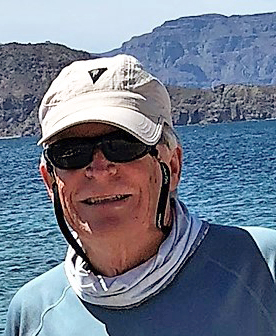By WELDON BOSWORTH
Last September the New Hampshire Fish and Game Commission (Commission) decided against recommending Glenn Normandeau for another four-year term as Executive Director of New Hampshire Fish and Game. The only explanation provided Director Normandeau or the public was that the Commission “decided to go in another direction.”
Skip forward to this June when Scott Mason, a farmer from Stratford, was nominated by Governor Sununu to be the next New Hampshire Fish and Game Executive Director.
The New Hampshire Fish and Game Department (Department) is a 200+ person organization with seven divisions and four regional offices. The Department is a large, complex organization with multiple missions and an annual budget of approximately $31,000,000. The job listing for Executive Director describes very specific qualifications including: extensive knowledge and significant experience in administration, wildlife, fisheries, natural resources, conservation law, as well as business, public administration or experience in related fields. Applicants for this position included several well-qualified wildlife professionals, including two current NH Fish and Game Department division heads. Several qualified applicants for this job were not even interviewed.
Mr. Mason falls far short of having demonstrated training or experience in these disciplines. While he has a degree in animal husbandry (the science of breeding and caring for farm animals), he lacks any training or experience in wildlife or fisheries biology, natural resources management, or conservation law. And, while Mason has served on several committees and in several administrative and functionary positions, he lacks any executive management experience.
Fish and wildlife agencies around the country are at a crossroads, because the number of hunters and anglers are decreasing and the revenue from license sales which have traditionally supported fish and wildlife agencies are no longer adequate to do so. As result, these agencies are turning to other means, e.g., sales taxes, general funds or additional fees to supplement the revenue from license sales. However, the availability of these sources are controlled by residents who are not hunters or anglers. At the same time the number of U.S. residents who appreciate wildlife (generically termed “wildlife watchers”) but are not hunters or anglers has increased dramatically, and revenue deriving from these activities is now greater than numbers and revenue from hunters and anglers combined (USFWS 2016. National Survey of Fishing, Hunting, and Wildlife-Associated Recreation: National Overview).
New Hampshire is not immune from this transition in how these agencies are funded. In New Hampshire, license fees and federal excise taxes related specially to sales of hunting and angling equipment that are returned to the state total about 40% of the Department’s funding. The balance comes from the general public through other federal funding, OHRV license sales and annual transfers from the state’s general fund, etc.
The Association of Fish and Wildlife Agencies (AFWA), of which NH Fish and Game Department is a member, has recognized this paradigm shift, and has implemented an initiative to broaden Fish and Wildlife Agencies’ relevance to the “diverse social, economic, demographic, political and environmental changes that states and provinces face.” AFWA has explicitly stated “that as society is becoming more urban and diverse, fish and wildlife agencies need new approaches to help engage the public and promote an understanding of the importance of maintaining healthy fish and wildlife.”
However, rather than capitalize on the opportunity to appoint a new Executive Director that can lead the Department in expanding its relevance to the 90% of New Hampshire citizens who are not hunters, trappers or anglers, it appears that the Governor and Commission’s “new direction” is to “circle the wagons” and double down on resisting any effort from NH citizens other than hunters, trappers and anglers to influence decisions relating to management of NH’s Public Trust resources, its wildlife and fish.
Mr. Mason’s nomination is emblematic of the long-time disregard displayed by the Commission towards wildlife stakeholders who are not hunters, trappers or anglers. Not only does Mr. Mason fail to meet the fundamental qualifications required for Executive Director, his history testifies to his biases against the interests of the non-hunting public.
In hearings on environmental bills this year, Mason’s testimony has opposed any attempt in modernizing the Fish and Game Commission by broadening the requisite qualifications to serve as commissioner and even called the supporters of such legislation “whackadoodles” (testimony HB 1571). He also testified against convening a committee to study prohibiting recreational trapping (testimony HB 1504). In addition, apparently his only “environmental” experience is eight years as a lobbyist for the ill-fated Northern Pass project.
If confirmed, Mason will perpetuate the “we versus them” attitude we have learned to expect from the Commission. His nomination and the duplicitous process of qualifying candidates is not only an affront to the residents of NH who have the right to expect a Department director with a proven track record, Mason’s lack of relevant technical experience is potentially detrimental to New Hampshire’s wildlife populations, which deserve better.
Weldon Bosworth
Gilford, NH
Weldon Bosworth of Gilford is a Ph.D. ecologist and retired environmental consultant with experience evaluating potential impacts to populations and communities of biological organisms throughout the U.S. and Canada.
Editor’s Note: The opinions expressed are the author’s.





